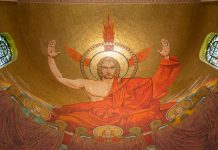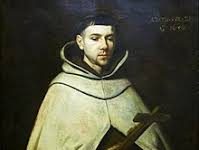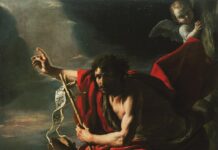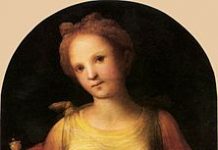On Monday 2 August the universal Church celebrates what is called The Pardon of Assisi. This great feast, which ranks as a solemnity within the Franciscan festivities, is another great sign of the immense good the Lord himself performs to his Church and the world through the Franciscan movement.
But what the Pardon of Assisi is all about? What is its important significance? What does it stand for? What is the message it is trying to convey? This feast is another visible way of God’s salvation salvation to his people, which resides in the forgiveness of their sins (Luke 1:77). Obviously, this most supreme act of God’s goodness by itself shows the tender mercy of our God (Luke 1:78), who even in our times still keeps remembering his holy covenant of mercy and comes to meet us where we are (Luke 1:72). Today, our God, who is Our Father, is still leaving the ninety-nine in the wilderness, and go after the one which is lost, until he finds it (Luke 15:4). And when he does so he lays it on his shoulders, rejoicing. And when he comes home, he calls together his friends and his neighbors, saying to them, `Rejoice with me, for I have found my sheep which was lost.’ (Luke 15:5-6). This, and only this, is the unchanging mystery of this great feast of the Pardon of Assisi.
But mercy never happens ethereally, in the clouds and far removed from our earthly context. On the contrary, mercy is historically contextualised and rooted in order to produce abundant good fruit which only God’s mercy can ever give us, sinful humanity. This tradition, in fact, goes back to the year 1216. On the first day of August of that year, Saint Francis underwent a life-changing experience thanks to an apparition he had of Christ, Our Lady and the angels at the location of Saint Mary of the Angels – or ‘Our Lady of the Angels‘, an abandoned church not far from Assisi, dating back perhaps to the fourth century, left to rack and ruin, which Francis set himself to rebuilding. As this experience went on, Francis deeply felt to ask the Lord to grant the plenary indulgence to each and every pilgrim who makes the journey to this very important church for the Franciscan Order, dedicated to Our Lady. The story goes that the Lord granted his wish.
The following day, St Francis fervently requested Pope Honorius III for his approval, which he received. For entire centuries the indulgence could only be received in the chapel of Saint Mary of the Angels. However, nowadays it is possible to receive it in all Franciscan churches as well as in all parish churches in Assisi and all the parish churches in Assisi. As generally occurs within these occasions, the conditions which should be fulfilled are: First, sacramental Confession within 8 days either before or after visiting the Porziuncola or any Franciscan Church in Assisi or anywhere else in the world. Second, participation in Holy Mass and Eucharist in the same time frame. Thirdly, recitation of the Apostles Creed, Our Father, and a prayer for the Holy Father’s intention.
In his visit to the basilica of St Mary of the Angels, the Porziuncola, in Assisi, on the occasion of the eighth centenary of the Pardon of Assisi on Thursday 4 August 2016, Pope Francis spells out to us the very essence of what this magnificent feast stands for.
Forgiveness – pardon – is surely our direct route to that place in heaven. How hard it is to pardon! How much effort it takes for us to forgive others! Let us think about this. Here at the Porziuncola everything speaks to us of pardon! What a great gift the Lord has given us in teaching us to forgive – or at least to try to forgive – and in this way to touch the Father’s mercy! We have heard the parable in which Jesus teaches us to forgive (cf. Mt 18:21-35). Why should we forgive someone who has offended us? Because we were forgiven first, and of infinitely more. There is no one here who has not been forgiven. Let each of us reflect on this… Let us reflect in silence on the wrong we have done and how the Lord has forgiven us. The parable tells us exactly this: just as God has forgiven us, so we too should forgive those who do us harm. This is the caress of forgiveness. A forgiving heart caresses. It is far removed from the attitude of: “You’ll pay for this!” Forgiveness is something other. So it is with the prayer that Jesus taught us, the Our Father, in which we say: “Forgive us our debts, as we also have forgiven our debtors” (Mt 6:12). The debts are our sins in the sight of God, and our debtors are those whom we, for our part, must forgive.
Pope Francis’ words of farewell should encourage us to keep celebrating the feast of the Pardon of Assisi not once a year but daily! Also, do not forget: always forgive. Always! Forgive from your heart and, if you can, draw near to the other, forgive. Because if we forgive, the Lord forgives us; and we all are in need of forgiveness…. Does anyone here not need forgiveness? … Raise your hand!… We all need it.
Is pardon a porziuncola, a “little portion”, or is it so great that Jesus told us of it: For if you forgive men their trespasses, your heavenly Father also will forgive you; but if you do not forgive men their trespasses, neither will your Father forgive your trespasses (Matt 6:14-15)?











